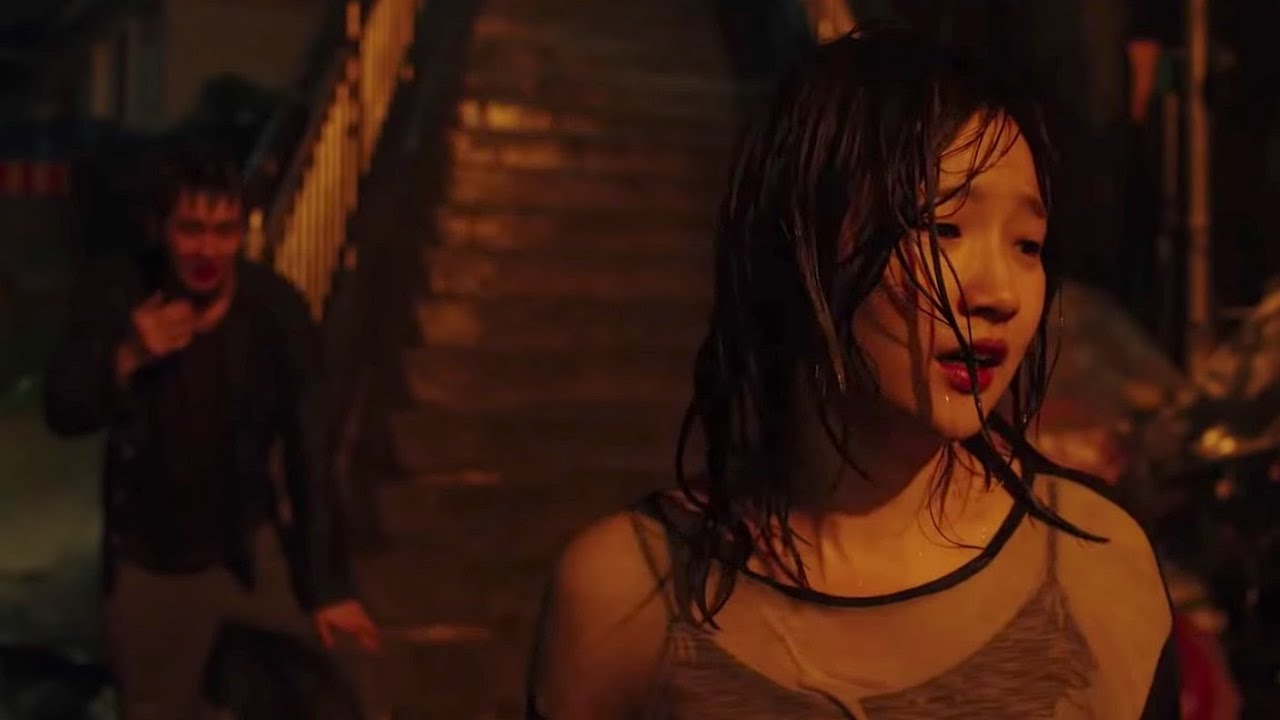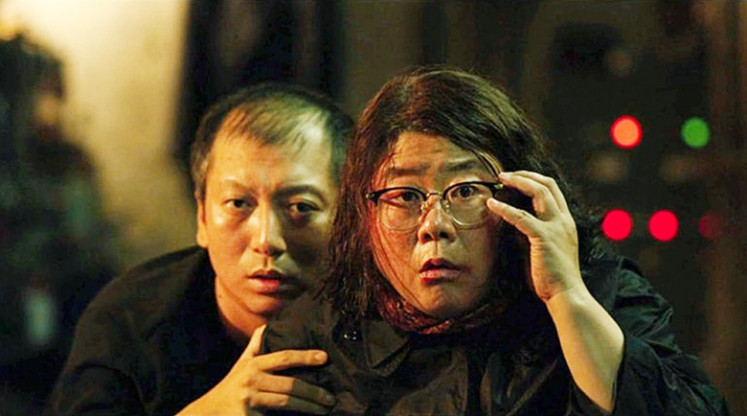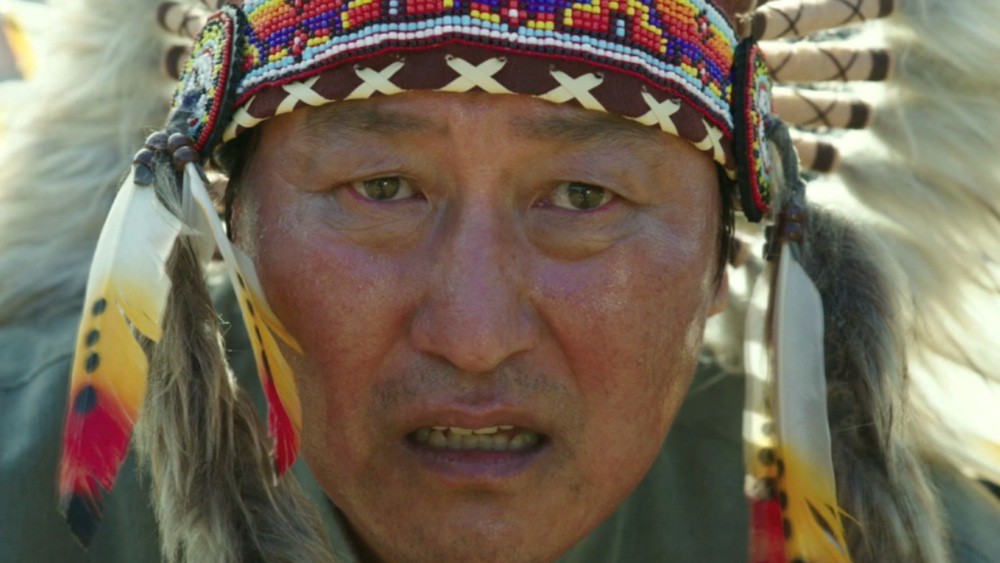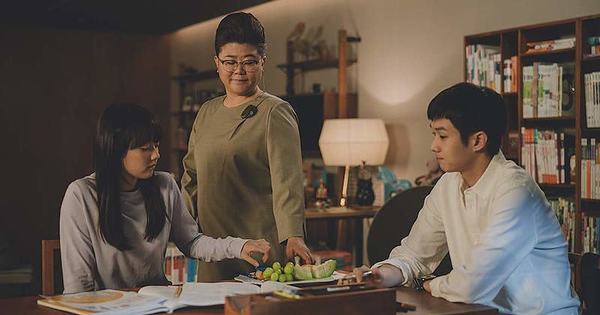6. The risk of rain

Whether you are rich or poor, you cannot escape the rain and its consequences. As something we cannot control, the rain should have the same effects on all of us independent of our social class, right? Maybe, but not in the real world.
In Parasite, the rain delays Park’s family camping trip, but on the other hand generates a flood that destroys the Kim’s home. After the rain, Parks are welcomed home with a warm meal, a safe sanctuary and dry towels. Their son can even play in the rain thanks to his raincoat and a tent.
In the meantime, the Kims have to join their whole neighbourhood in an improvised shelter at the sports gymnasium. The same event created devastating life-threatening consequences to the poor, while for the rich it was only a minor inconvenience. In fact, Ms. Park considers the rain a blessing in disguise because the sky was clear and there was no pollution the next day.
It is clear that in the event of climate change driven catastrophes, which is not a matter of “If” but rather “When”, the countries of the global South and the poor are the most exposed to its tremendous repercussions and this is probably something Bong wanted to convey to the audience.
7. Geun-sae, the invisible man in a neoliberal society

In a shocking plot-twist halfway through the film, it is revealed that Geun-sae, the husband of the Park’s former housewife, Moon-gwang, has been living in Park’s basement for the past four years.
Geun-sae’s business went bankrupt, so he had to find a shelter in order to save himself from the wrath of loan sharks. Unlike the Kims who at least have some access to daylight, Geun-sae lives in a sunless dungeon completely cut off from society. Funny enough, the basement still has access to a Wi-fi signal, because it’s technically still in the Park house, which is another clever wealth inequality metaphor by Bong.
Geun-sae is essentially a ghost in the Park household. While the Parks think that the lights in the hallway are randomly going on and off because of the sensor malfunction, it is Geun-sae’s manual work from the basement that powers them. This symbolizes immense ignorance by the privileged and it is another illustration of a great divide between the rich and the poor.
In a way, Geun-sae’s existence is a spoiler in itself, even to the audience. Maybe that is Bong’s way of telling us that Geun-saes of the world are not ghosts only in the eyes of the rich elite.
8. The Native Americans cosplay

When Ki-woo first set foot in the Park house, toy arrows could be seen all over the place. Later that day, cosplaying as a Native American, Da-song even “fired” his arrows towards Ki-woo, an event which can be seen as a subtle foreshadowing of some sort.
Eventually, Ki-woo is going to get attacked, but by the metaphorically “real” Native American of the house this time, Geun-sae. The Native American cosplay by Ki-taek and Mr. Park does not only serve the purpose of signaling the upcoming massacre. The plan was supposed to be that these two, cosplaying as Native Americans attack Jessica, but what actually happened was that Geun-sae, who symbolizes the “real” Native Americans, attacked and killed Jessica, whose family were trying to invade the house first “inhabited” by Geun-sae and his wife.
The Parks do not have a clue about the complicated history and tragedy of Native Americans, cosplaying as them for the Parks is just another hobby. The Native American cosplay theme can be interpreted as a metaphor in which the true oppressors make a sport out of the tragedy of the less fortunate for their own ignorant reasons and superficial needs.
9. “Crossing” the line

Mr. Park does not like it when his employees “cross” the line. He does not like it when his subordinates try to be personal with him. But it is not just that. He does not care about those positioned below him in the socioeconomic hierarchy. Not because he considers them boring or uninteresting, but because he does not want the mixing of the two worlds.
“I respect those who work in one field for a long time” is something Mr.Park said to Ki-taek. Well, of course he does. Working in one field for a long time means that those individuals would not get a chance to find better pay or a more satisfying job and therefore would be stuck at the lower-income positions in the enthroned socioeconomic hierarchy. This embodies the notion of the privileged about the status quo and the world without much social mobility.
Mr. Park’s failure to identify the type of smell surrounding Ki-taek is Bong’s way of making a statement about the absolute separation of the privileged from the troubles of the common folk.
We know that Mr. Park is the CEO of an IT firm which, among other things, makes virtual world products. Maybe that is Bong’s way of saying that people like Mr. Park live in an entirely different, virtual world.
10. Do you have a plan?

Every plan Ki-taek made was eventually destined to fail. He worked as a valet driver, owned a fried chicken joint and a Taiwanese cake shop before he started working for the Parks. But he is still delighted to hear that his son Ki-woo has a plan when he decided to try his luck with an English tutoring job. Ultimately though, Ki-taek confesses that the best plan is “no plan” because in that way “at least nothing can go wrong”.
Having a plan can be interpreted as an illusion of the possibility of quick and fast climbing up the social ladder in today’s society, at least for the majority of working-class people. Maybe Ki-taek lost all hope in the end, and just like Geun-sae, came to terms with his life in poverty.
In a letter to his father, Ki-woo promises that he will become so rich in the future that he will eventually buy the former Park house. By doing that, he will reunite the Kim family in the process, or at least what is left of it. “All you need to do is walk up the stairs”, says Ki-woo at the end of the letter.
But just like it would take Ki-woo 564 years to buy that house in reality (according to Bong’s calculation mentioned in one of his interviews), the desired ascend to the top of the socioeconomic hierarchy remains just a dream, even in a movie.